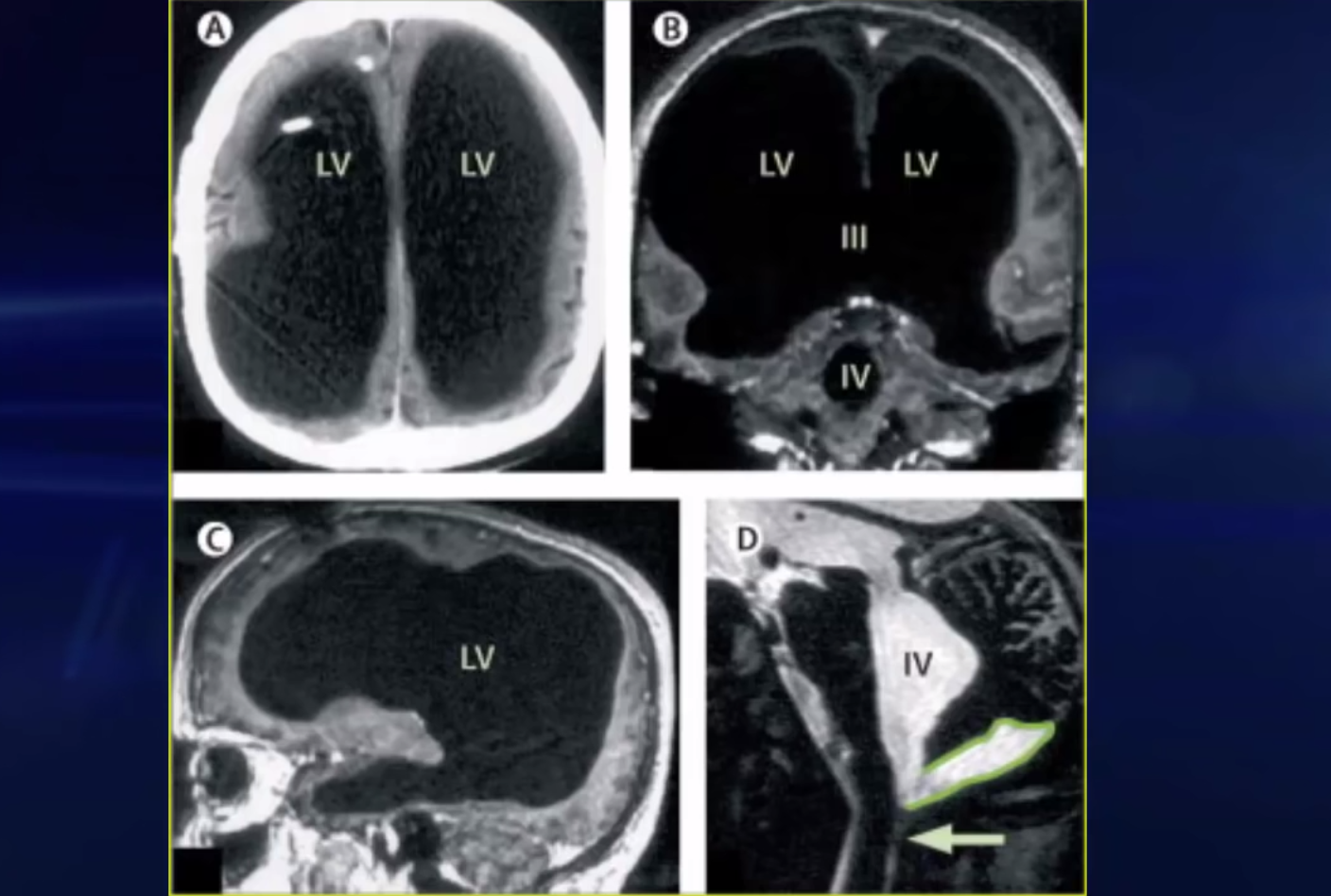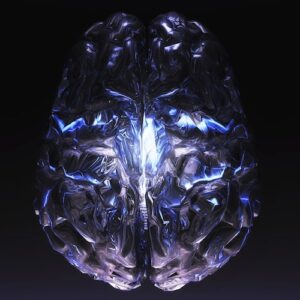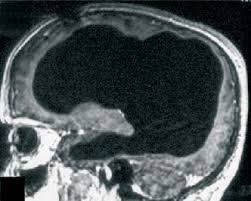It is widely believed that humans only use 10% of their brains. While some have debunked this myth, one man has proven the notion to be very possible.
When a 44-year-old French man walked into a doctor’s office back in 2007 complaining about a weakness in his left leg, he was stunned to learn that he had been living without the majority of his brain for most of his life.
Brain scans revealed that a build-up of fluid had caused most of the inner part of his brain to erode away. This condition is called: hydrocephalus also known as “water in the brain“.
Here is an image of his brain scan:

The Center of the Chain
It goes without saying that the brain is an integral part of the body. It is responsible for many of the inner and outer workings of the body, such as:
-
higher cognitive functions
-
motor functions
-
coordination of movement and balance
-
breathing
-
blinking
-
memory
-
heartbeat
-
blood pressure
Seeing as science has proven that humans actually use 100% of their brain, it’s hard to believe that anyone could live a normal, healthy life while missing 90% of this organ.
A New Theory of Consciousness
Despite a lack of neurons, the 44-year-old has been able to live a fully conscious and abundant life with his wife and two kids. Throughout his life, the only thing he remained unaware of was the missing chunk in his brain.
This man’s story has forced scientists and doctors to rethink their understanding of consciousness.
For years, scientists claimed that one specific region of the brain called the thalamus (situated between the cerebral cortex and the midbrain) was responsible for consciousness.
 The function of the thalamus is to send sensory signals to the cerebral cortex. What’s more, research has shown that a damaged thalamus is what causes people to fall into a coma.
The function of the thalamus is to send sensory signals to the cerebral cortex. What’s more, research has shown that a damaged thalamus is what causes people to fall into a coma.
The above mentioned man’s ability to live with a hollow brain has squashed these theories and led scientists back to the drawing board.
While most neuroscientists believed that consciousness came from the structure of the brain, others have argued that it’s simply a result of how your neurons communicate with one another.
Axel Cleeremans, a cognitive psychologist from the Université Libre de Bruxelles in Belgium developed a theory about how the brain is able to learn consciousness rather than one being born with it. Thus, rather than consciousness being confined to one specific location in the brain, various regions can learn it.
For this French man, although he only had a few neurons remaining, “the neurons left over were able to still generate a theory about themselves, which means the man remained conscious of his actions,” Science Alert reports.
This astonishing finding has created a new discourse surrounding the brain and consciousness and prompts us to delve deeper into other health issues like neurodegenerative diseases.
Sources
http://www.scientificamerican.com/article/do-people-only-use-10-percent-of-their-brains/
http://serendip.brynmawr.edu/bb/kinser/Structure1.html
http://www.ninds.nih.gov/disorders/hydrocephalus/detail_hydrocephalus.htm
http://www.news-medical.net/health/What-does-the-Thalamus-do.aspx

